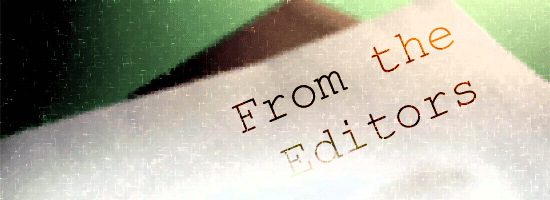 By Aimee Rasmussen, Associate Editor
By Aimee Rasmussen, Associate Editor
I love books, as I’m sure many of you do. Any leisure time I get is usually spent curled up in a comfy chair, maybe with some hot tea or a glass of wine, reading. I bring a book with me almost everywhere I go because, hey, there’s gotta be at least a little “wait time” at some point in the day, even if it’s just a few minutes at the gas station, in the drive-thru or at the doctor’s office.
So, what’s so great about reading? To me, there’s just something amazing about diving deeply into a story of another place, time or person’s life, allowing you to live briefly in a world completely different than your own. We not only do this with books, but also through movies, news broadcasts, gossip, and so on. Stories are our life, and not just in a small way. We ARE stories.
What do I mean by that? It can be argued that a person’s whole being is made up of the stories that he grows up with – fairy tales, children’s books, cartoons, textbooks, magazines, novels and movies. We think that our personalities, thoughts and morals are developed independent of these stories, and that we aren’t really influenced by them – they’re just for relaxation or entertainment, right? Well, this isn’t really true.
Stories shape us. They influence the way we see the world. Have you ever watched a movie or read a book and felt changed after it was over? You suddenly see things from a new perspective, or maybe you finally understand what someone else is going through in life because that story gave you a different viewpoint with which to see the world. Sometimes it could be a very subtle change that you don’t even notice right away, but manifests later on. Even if we don’t realize it, each story we hear, read or see affects us in some way.
Therefore, our storytellers – authors, playwrights, directors, poets and journalists – are probably the most powerful and influential people in the world! They have the ability to completely change your mindset, morals, opinions and personality – even without you realizing it. Wow, that’s a lot of responsibility!
My point here is that we should all be aware of which stories we are allowing into our brains, and for you parents out there, what your children are putting into theirs. We should understand the power that a story has and be critical of what we consent to affect us. You can’t watch hundreds of horror flicks without eventually becoming numb to the violence it portrays. A constant diet of romance novels is bound to change your expectations about love and sex. Even historical fiction blurs your knowledge of the realities of the past.
None of these genres are necessarily bad in themselves, but as the saying goes, anything can be bad for you in excess. My suggestion is to go for a well-rounded, healthy diet of a wide variety of stories, peppered with some common sense and critical thinking skills. Knowing the power of stories will help you see them, and the world, in a more tempered, realistic way. Don’t stop reading or watching movies – there’s no way I could, either! Just realize that those stories may be changing you, and hopefully you will choose ones that change you for the better.
 Aimee Rasmussen got involved with Portland Book Review in Fall 2011 as a reviewer, and then, copy editing and posting reviews to the website. She manages Portland Book Review’s Twitter account, and any other projects they have for her to do. She has a Bachelor’s degree in English from Portland State U., and a Masters in Teaching at Pacific U. to become a middle-school/high-school English teacher.
Aimee Rasmussen got involved with Portland Book Review in Fall 2011 as a reviewer, and then, copy editing and posting reviews to the website. She manages Portland Book Review’s Twitter account, and any other projects they have for her to do. She has a Bachelor’s degree in English from Portland State U., and a Masters in Teaching at Pacific U. to become a middle-school/high-school English teacher.
